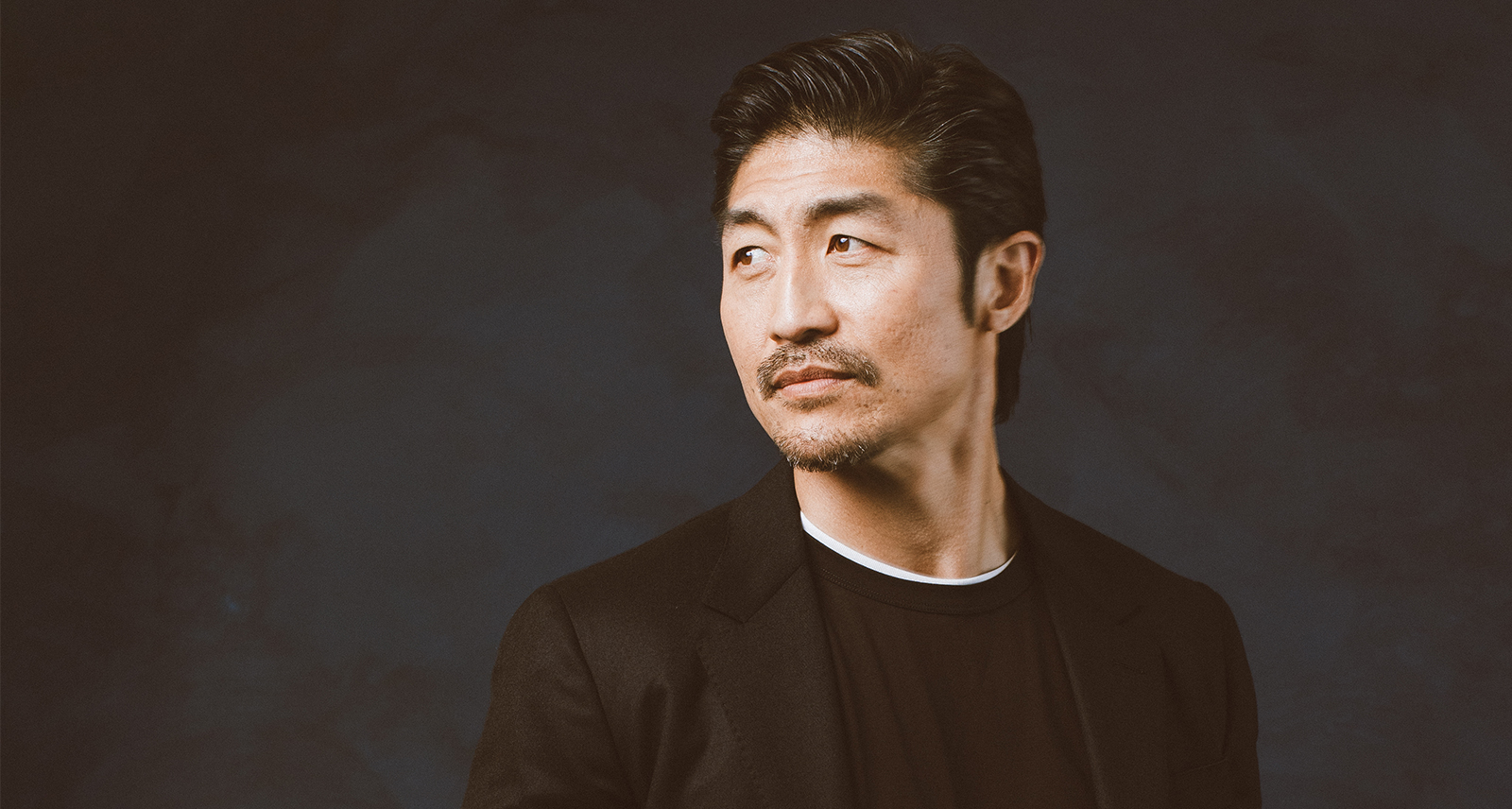‘Expats’ Star Brian Tee Calls Series “The Best Thing I’ve Ever Been A Part Of”
If you haven’t tuned into Expats — a six-episode miniseries based on Janice Y.K. Lee’s 2016 novel The Expatriates — here’s your sign. On the surface, the series is a close relative of titles like White Lotus, Big Little Lies, and Little Fires Everywhere: moneyed-but-dysfunctional families feature in an ensemble cast, including Nicole Kidman in a lead role. That’s three genre-defining features, right off the bat.
Still, Expats manages to stand out in the crowded lane. For one, the cinematography is head-and-shoulders above typical streaming fodder: the penultimate episode, a 96-minute affair, feels like a short film. Then, there’s the plot. Expats centres three female leads, each in various degrees of misery. Hilary Starr (Sarayu Blue) is trapped in an unhappy marriage to David (Jack Huston), marked by substance abuse and infidelity, while recent Columbia graduate Mercy (Ji-young Yoo) feels ‘cursed,’ rudderless in the wake of her achievement. Margaret Woo (Nicole Kidman) and Clarke Woo (Brian Tee) come as close to the ‘centre’ of Expats as one can get. Following the disappearance of their young son Gus, the three plots intertwine, dreadfully tangled in each other’s problems like turtles stuck in a fishing net.
“Initially, I wanted [Clarke] to just lead with love. Throughout the series, he’s the guy that’s trying to hold everything together.”
Brian Tee
Clarke Woo stands in the eye of the storm. We watch Clarke try and anchor Margaret as she rapidly plunges into panic. “He’s the guy that’s trying to hold everything together,” agrees Brian Tee. That’s a tall order: not only do we see grief, with all its confusion, frustration, and denial, up close, but we watch the family’s affection — once a reprieve from the isolated expatriate lifestyle — descend into disarray. Their grief erodes the setting, turning Hong Kong into an ever-present reminder of loss and loneliness. So, for all its theatrics, the engine of Expats is psychological.
“When people are dealing with tragedy, trauma and grief, they have to turn to something for answers,” Tee says. “It doesn’t quite make sense in your own reality.” For Clarke, this meant seeking guidance in religion. It’s another point of tension between him and Margaret, a committed atheist. “Even though religion wasn’t in [Clarke and Margaret’s] zeitgeist, he needed something to find hope,” Tee adds. Though Clarke maintains that he isn’t religious — at least, not in the traditional sense — his enduring friendship with Alan, pastor and fellow expat, underpins his grieving process.
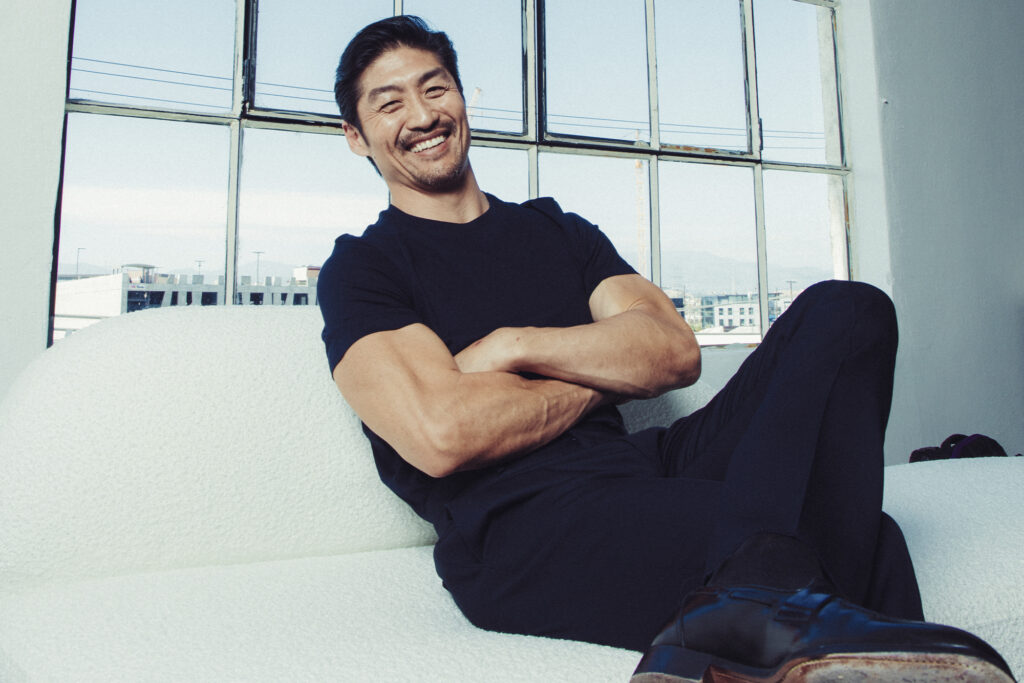
“A lot of people turn to that. I think it’s a very human quality. I’ve been in very dark times and I’m not religious myself, but I pray to an afterlife. I pray to my grandmother, who I loved, that passed away 15 years ago,” Tee explains. To prepare for the role, understanding the universal quality of grief was key: “Trying to find that sense of hope, answers that you can’t solve — that’s how I related to it.”
A father himself, Brian Tee used personal experience to contextualize the role. “Initially, I wanted him to just lead with love,” he says. “As far as his grief is concerned, I pinpointed certain circumstances that I’ve lived in and experienced, but also dove deep into what ‘grief’ is. I’ve studied the five stages of grief — denial, anger, bargaining, depression and acceptance — and [in each episode], I tried to centre one of those stages of grief.”
“I love living in that moment of experience, in discovery. I think for every actor, that’s what you want to live in — you want everything to be a discovery, to be spontaneous. You want to live in that moment as much as you can.”
Brian Tee
Grief reaches a boiling point in episode four. Locked inside Shenzhen morgue (the result of Margaret’s own emotional turmoil) the couple wrestles with the prospect of returning home. Margaret’s denial fuels Clark’s gripe: “We’re drowning and you don’t see it. You don’t even want to talk about it.” Intimate moments like these are the bedrock of Expats. In a stationary setting, the characters’ emotional conflict reads like an action sequence. The wheels could easily fall off with the wrong cast, but Tee and Kidman are neither soapy nor melodramatic — they’re genuine and resonant.
“I loved our entire cast. I think they’re so incredibly talented and just wonderful human beings. Especially being led by three strong, brilliantly talented females, I was just there to support,” Tee says. “Nicole is Nicole Kidman. I mean, what more can you say? She’s acting royalty to me. She set such a high bar and a particular standard, but still so giving in so many ways.”
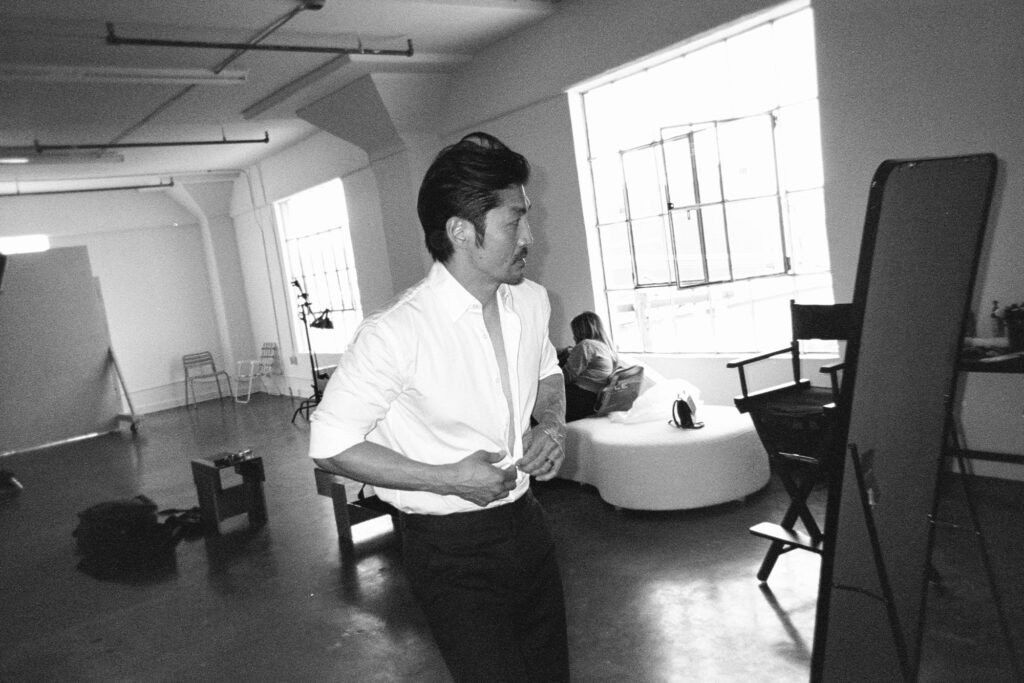
For a character-centric plot to work on-screen, there has to be authentic trust and chemistry between actors. That’s the magic of Expats director Lulu Wang, who Tee calls “a directing genius, in the best way. Her instincts are so incredibly spot-on.” He adds that the confidence exists with Kidman, too. “Our characters run such a gambit of emotions, and so many things happen to us. We have to trust each other as artists, or else we can’t really go there.”
With an ensemble cast, the audience has a meta-perspective. Viewers see more of the characters than they do of each other. For example, while we see Clarke and Margaret’s tension up close, we also get a look at Essie, the Woo family’s nanny and housekeeper in the fifth episode.
Though she wasn’t responsible for Gus’ disappearance, Essie feels a sinking regret for not being there. “That particular perspective was so incredibly important, yet extremely moving,” says Tee. “To make it this movie of sorts was, I feel, the brilliance of Lulu [Wang] and the casting crew. To fulfill a particular aesthetic — as far as the POV is concerned — is to say ‘Hey, it’s not just about the privileged ones going through these situations. Others are also experiencing it in a different way.'”
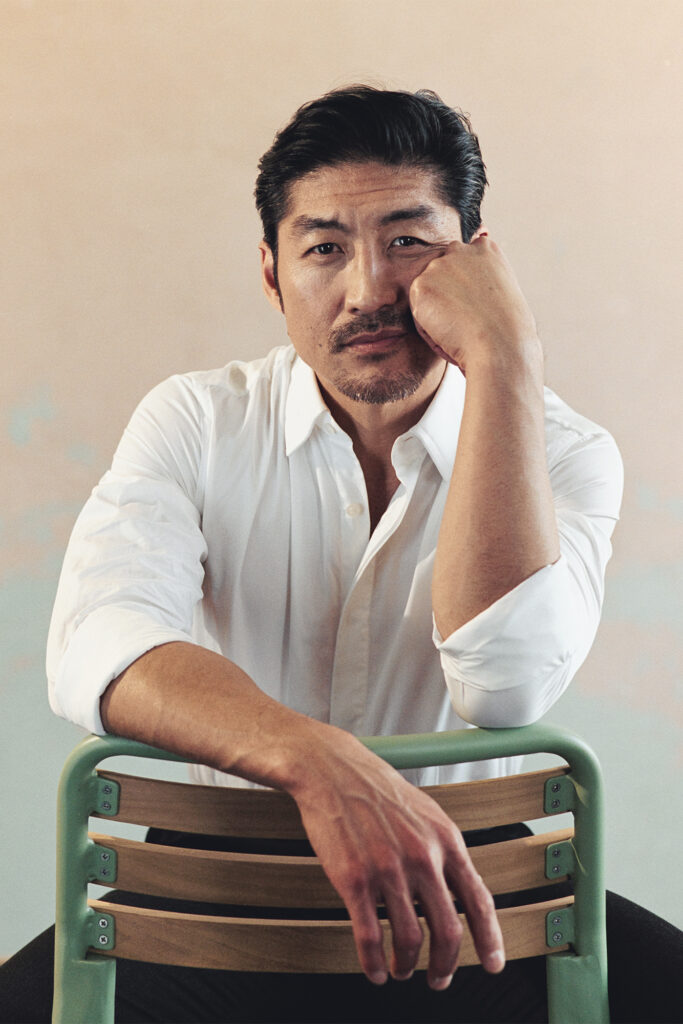
As an actor, though, the experience is different. Tee says he wasn’t part of the almost-omniscient audience, but “right there with Clarke.” For Tee, that’s the appeal of acting. “I love living in that moment of experience, in discovery. I think for every actor, that’s what you want to live in — you want everything to be a discovery, to be spontaneous. You want to live in that moment as much as you can.”
To recap, the finale showed the Woo family preparing to board a flight back to America along with Essie. After six episodes, it’s almost an admission that Gus cannot be found. Margaret’s grief resurfaces at the last second, and she decides to stay behind. Almost immediately, Clarke comes to terms with this; he’s surprisingly calm in the face of uncertainty — or, after a season of grief, perhaps he’s gotten enough practice.
“At the ending, I don’t believe that the audience knows what’s going to happen. While doing the scene, I didn’t want to even know. So, I didn’t create any conclusions for the aftermath. I wanted to be in the moment, centred, exactly where Clarke was. The situation that unfolded was something that Clarke would have done spontaneously: his conclusion was his own conclusion,” he explains.
“There’s so many different levels, and so many other perspectives to relate to. It’s not so black and white.”
Brian Tee
To perform as Clarke, Tee had to understand the depth of his character — including a study of his marriage: “I think for Clarke there, there lived a particular sense of grey. In his relationship with Margaret, he was ready for things to go in a different direction. It’s been their life for the past year, two years in this particular journey, post-losing Gus. In that sense, I feel like Clarke was definitely… ready? [He’s] not completely allowing that to really guide him, if that makes sense,” Tee muses.
“Living in this ambiguity, living in the spontaneity, I think Clarke had to know Margaret was hedging. It’s something that you feel, especially when you love each other, and you’re with your partner for more than two decades. There is an unwritten energy and an unwritten connection. Her hesitations would be clues for Clarke in that sense, but Clarke knew what was best for the family, and needed to continue to charge on in order for them to quote-unquote move on. Wherever Margaret was, hopefully with us or without us, we would figure it out. Now, later, and in the future.”
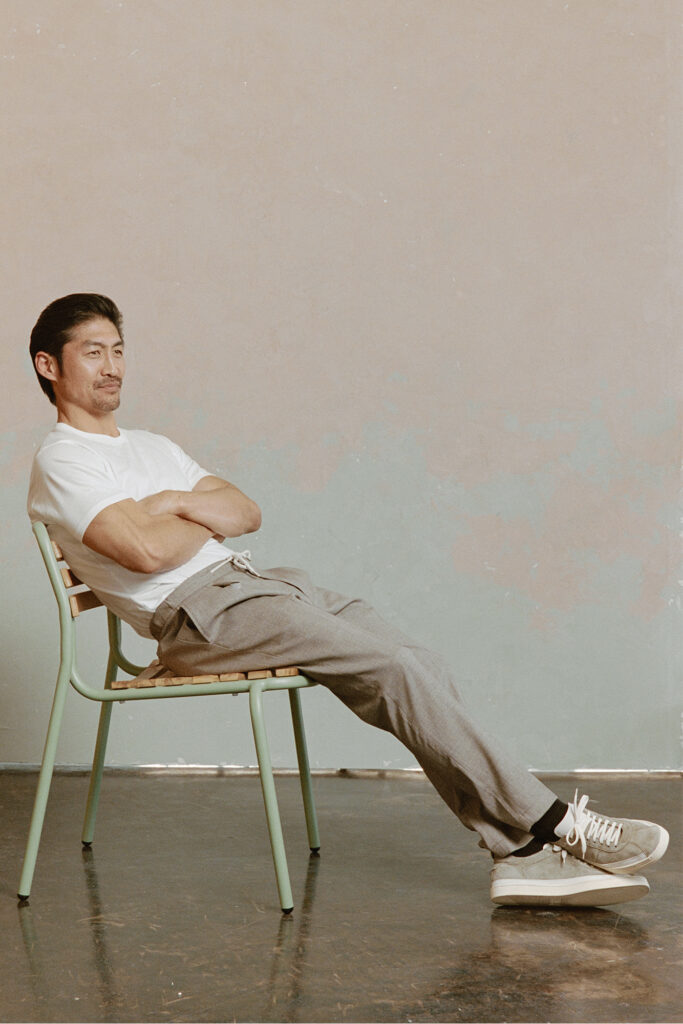
Of course, the scene is part of a larger, recurring conversation about family, wealth, and fulfillment. Essie, for example, had eagerly planned to return to her family in the Philippines when the Woo family left Hong Kong. When Margaret offers her a job in the States, she weighs the financial opportunity against reuniting with her family. Ultimately, Essie returns with the Woos, while Margaret stays in Hong Kong.
“The juxtaposition between Essie and Margaret has privilege involved, but there’s so many other circumstances involved, you know? It’s a mother with the loss of her child, and that situation is completely different from Essie’s,” Tee explains. “Essie was a caretaker of Gus, but Essie’s children were fully grown, and she had grandchildren.” He says the sequence isn’t intended to contrast the characters; instead, it’s an opportunity to empathize with different perspectives.
“I think this is the brilliance of our show. It’s not just ‘oh, it’s because of privilege that they’re able to have this juxtaposition.’ It’s like not that at all. There’s so many different levels, and so many other perspectives to relate to. It’s not so black and white.” As a viewer, it’s easy to experience a show through its overarching themes — Tee says he often feels the same way. As an actor, though, his goal is to see the story through Clarke’s eyes.
“We all live and breathe different lives, and we connect to different things [on the show]. But the one core thing is that we can understand humanity. That’s what makes this show so great,”
Brian Tee
“You’re always thinking about different circumstances, as far as story is concerned. As someone looking in on the outside, through different characters, you really feel the immigrant story, the expat story, the privilege, and how it all intersects,” Tee says. “[but] when you’re dealing with a particular character —Clarke himself — I don’t think he thinks about the privilege of it all. I think he’s trying to live life the best that he can and take care of his family.”
On screen, Tee’s empathy for his character translates. Viewers get a raw, unfiltered look into his psyche. Perhaps that’s why the plot of Expats resonates, nuanced and theatric as it is. “We all live and breathe different lives, and we connect to different things [on the show]. But the one core thing is that we can understand humanity. That’s what makes this show so great,” he says.
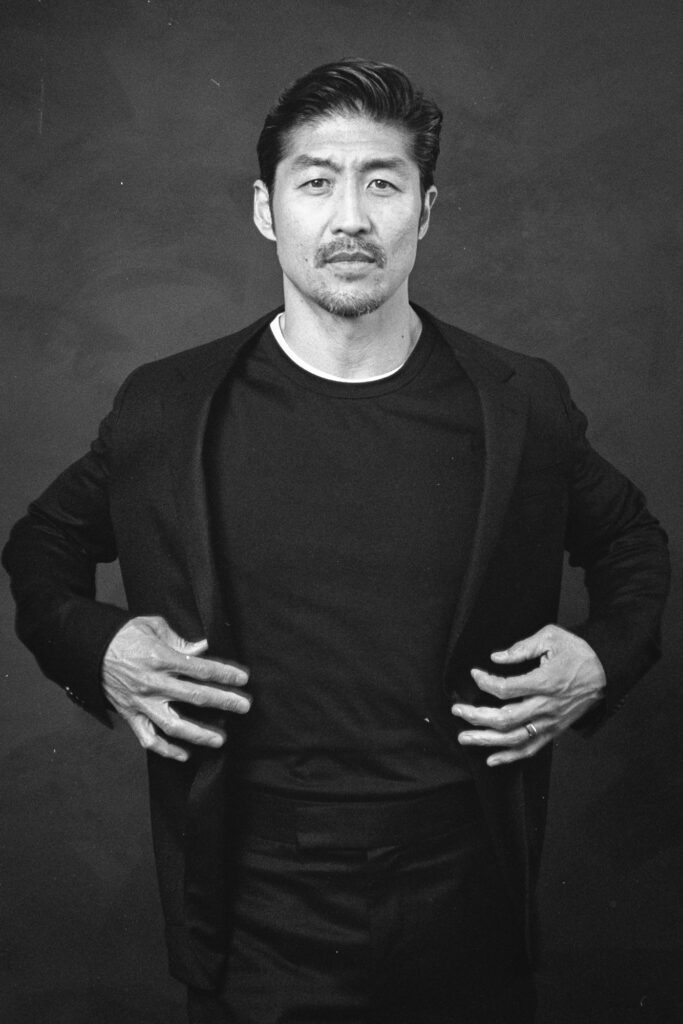
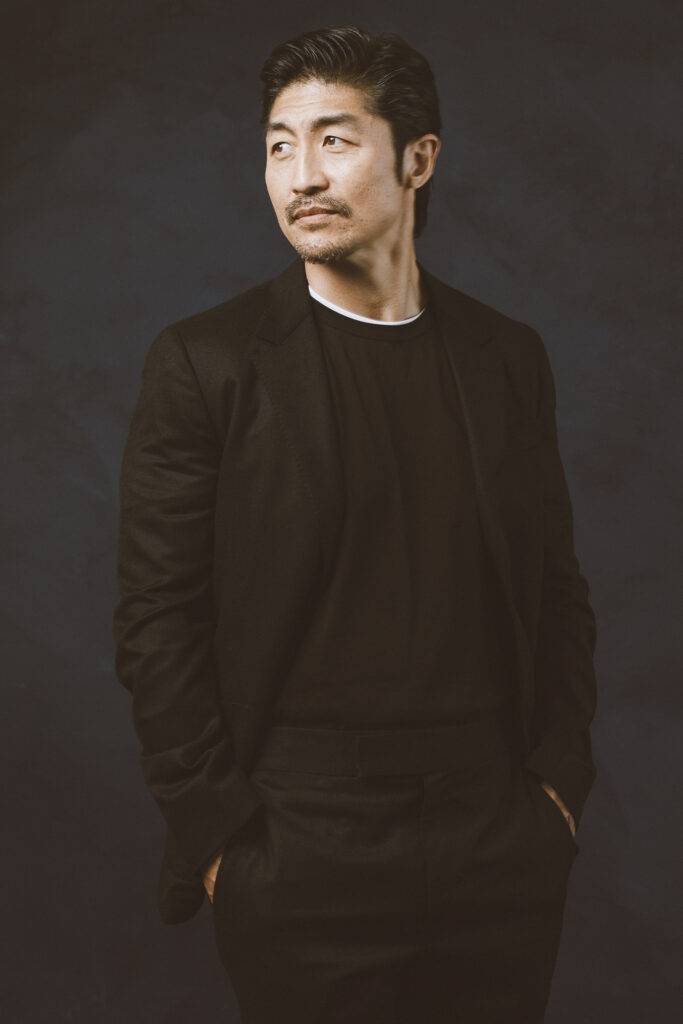
With the series finale released, the actor says he’s looking forward to audience reactions. “I’ve been blessed to be a part of [Expats]. I’m so incredibly proud of it. As far as my 25-plus years in the business, the best thing that I’ve ever been a part of — definitely the most ‘elevated’ thing I’ve ever been a part of, and I’m so grateful for all of the positive reactions,” Tee says. “I’m just along for the ride and really enjoying every aspect of it. The anticipation of people being able to binge it — to fully experience it as a whole instead of week to week — is a whole other journey and hold on. It’s a six and a half hour movie.”
No matter what Tee does next, Expats was an experience to remember. “I’m in great company,” he says, “It takes a village, and the artists I’ve been surrounded by lift me up.”
Expats is now streaming on Amazon Prime.
